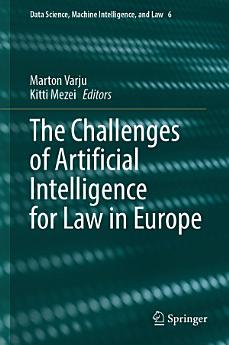The Challenges of Artificial Intelligence for Law in Europe
About this ebook
From the landmark AI Act to data protection and data governance frameworks, this meticulously curated collection offers unprecedented insights into (1) the delicate balance between the public and private benefits of AI, and the public and private risks it poses; (2) the regulatory policy and regulatory strategy influencing European law-making; (3) the role of ethics and human rights in regulating AI in Europe; (4) the real-world implications of evolving European AI regulation; and (5) future challenges and opportunities in the rapidly evolving AI landscape.
Distinguished contributors from the fields of legal scholarship, policymaking, and legal practice provide unique perspectives on the legal and policy foundations of the AI Act, the Council of Europe Framework Convention, and other international documents; the regulatory design and requirements of the AI Act; the challenges of using AI in adjacent legal and regulatory areas; ethical issues surrounding the technology and their impact on its proliferation in the private and public sectors; and compliance-related challenges and practical solutions in key sectors.
This authoritative work offers invaluable guidance to help legal professionals, researchers, policymakers, and technology executives navigate the complexities of AI regulation at the intersections of innovation, the public and private good, and social control. The volume combines theoretical depth and contextual analysis with practical applicability, making it an indispensable resource for anyone involved in shaping or adapting to Europe’s AI regulatory landscape. The book is also essential reading for AI researchers and developers, technology consultants and industry analysts, policymakers and regulators, legal practitioners and compliance officers.
About the author
Marton Varju is research professor at the HUN-REN Centre for Social Sciences, Institute for Legal Studies, and associate professor at ELTE University, Faculty of Social Sciences, Institute of Political and International Studies. He is also long-term member of Central European University’s Center for Ethics and Law in Biomedicine (CEU CELAB). Marton has extensive experience in regulatory consultancy in technology-driven industries. His current research interests include European technology policies and the law, and empirical European legal studies.
Kitti Mezei is a senior research fellow at the HUN-REN Centre for Social Sciences, Institute for Legal Studies, and a lecturer in technology law at the Budapest University of Technology and Economics. She leads the Hungarian Artificial Intelligence National Laboratory AI law research group within the HUN-REN Research Network. Her research interests lie in technology regulation, with a particular emphasis on artificial intelligence and cybercrime.






